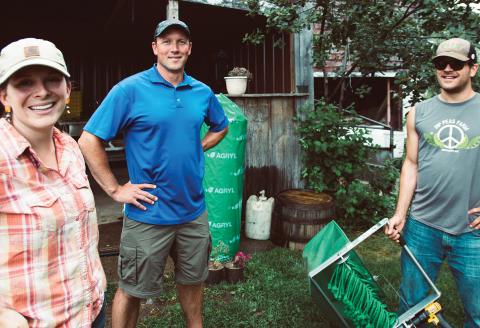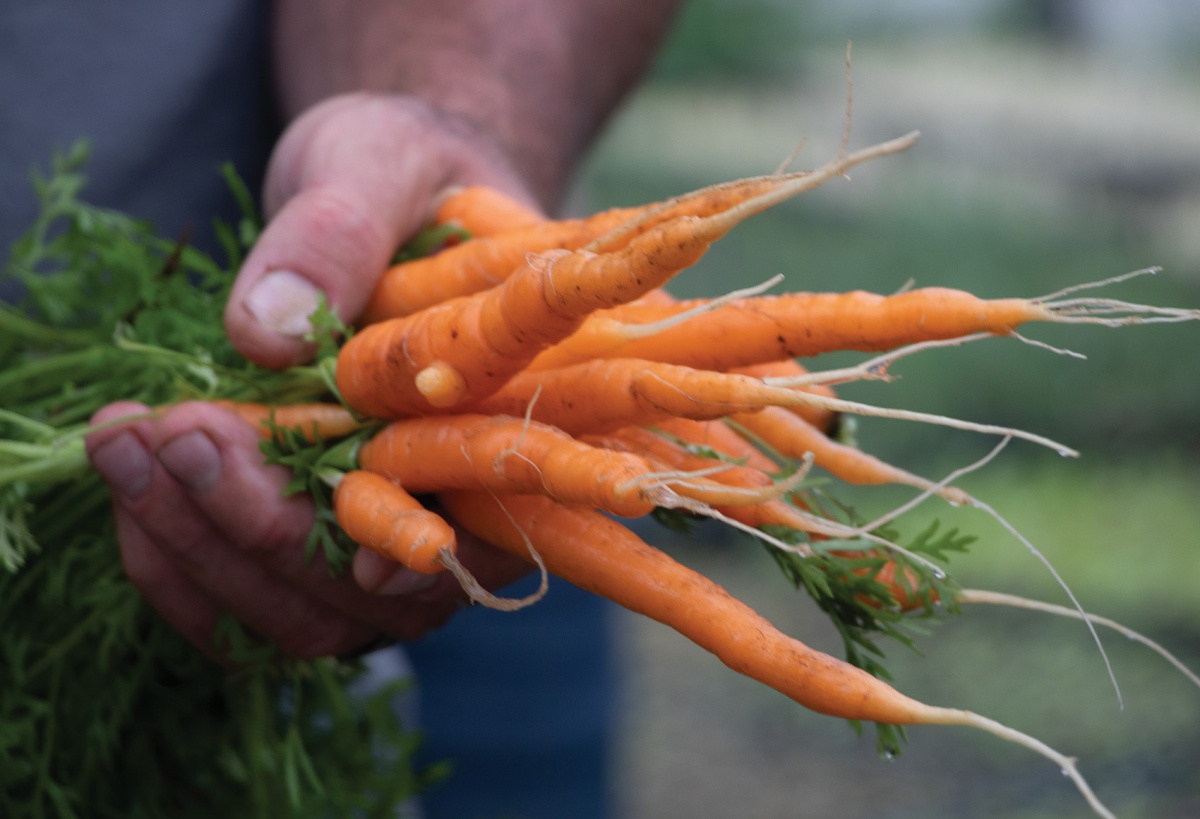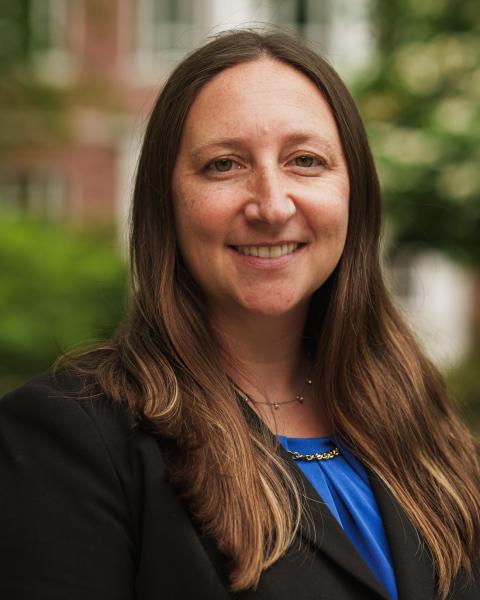Seeing The Big Picture

Husband and wife team Dan Lagueux and Valerie Vanasse opened New England’s Tap House Grille in 2013 to serve from-scratch meals and local craft beer. After just a few years of making hand-pressed burgers, wood-fired pizza and a rotating selection of seafood specials, they wanted a more controlled production of fresh produce for their dishes.
Enter Hip Peas Farm, the duo’s holistic, sustainable venture that supplies the tap house with a variety of fruits and vegetables including spring and salad mixes, microgreens, swiss chard, arugula, baby kale, tomatoes, squashes, strawberries and (of course) pea tendrils.

Set on five and a half acres alongside the Merrimack River in Hooksett, the property also includes a restored farmhouse built in the 1860s that can be rented nightly through Airbnb. They intend to host weddings and other functions on the complex.
Such a large farm-to-table operation requires detailed, thoughtful planning. Lagueux met Dan Birnstihl in 2017 while Birnstihl was still a student in UNH’s sustainable agriculture and food systems program. Lagueux knew instantly that Birnstihl would be the right fit as director of agriculture for Hip Peas Farm. He hired him after their first conversation.
In the years since, with support from Extension staff members, Birnstihl has grown Hip Peas into a thriving operation with a focus on holistic farming.
Establishing a Vision
Birnstihl initially met with fruit and vegetable production field specialists Jeremy DeLisle and George Hamilton during the 2017-18 winter to discuss issues surrounding production, soil, fertility and crop mixtures. “We’re here to serve as a liaison. We can connect farmers with resources and provide insight,” DeLisle says.
Holistic farming, also referred to as whole-farm planning, is a regenerative agricultural practice that takes into consideration social, economic and environmental aspects of the industry rather than focusing exclusively on a bottom line.
Elaina Enzien, dairy, livestock and forage crops field specialist for Extension, explains, “Whole-farm planning is very personal. There’s a strong focus on quality of life.” Enzien and DeLisle assisted Birnstihl and Lagueux with goal setting. Although Lagueux already had a strong vision, Extension’s involvement helped with making sure everyone was on the same page.
“We set up standard operating procedures, created value statements and developed a system to achieve their goals,” Enzien says.
“Having a third party helps to work ideas out,” Birnstihl says.
Systems Thinking
The relationship between Hip Peas Farm and New England’s Tap House Grille is unique because most of the restaurant employees have at one point worked on the farm. “We can transfer the enthusiasm and knowledge of what’s happening at the farm directly to the restaurant,” Birnstihl says.
Birnstihl served in the United States Marine Corps before enrolling at UNH, and sees a correlation with farming when it comes to systems thinking: strategically mapping out production, analyzing costs and determining benefits. He consulted with Jonathan Ebba, landscape and greenhouse field specialist for Extension, when planning the farm’s two high tunnels (greenhouses without foundations).

“I looked at factors like heat and light costs to determine if it would be profitable for Dan to grow his own transplants instead of buying them in, and the answer was yes,” Ebba says.
The farm is USDA certified organic and has transitioned to “no spray,” meaning that produce is free of conventional and organic insecticides, herbicides and fungicides. Laguex and Birnstihl are starting a composting program to utilize food scraps and create a closed loop food system. Eventually, they plan to recycle spent cooking oil from the tap house to help generate fuel.
Birnstihl continually looks for ways for Hip Peas to become self-sufficient. “Farmers are a hard-working bunch. It’s important to manage time efficiently and work smarter to avoid burnout,” he says.

Community Connection
Hip Peas will construct two more high tunnels, adding almost 6,000 square feet of winter growing space. They will add cover crops, which are used to add protection and enrichment to the soil. They’ll also create a pollinator habitat to help aid local bees.
DeLisle has enjoyed seeing the farm grow and continues to regularly work with Birnstihl. “It’s a mutually beneficial relationship,” DeLisle says. “We learn from one another. Hip Peas has been very proactive, cooperative and generous with their time.”
Birnstihl is grateful to have DeLisle as a sounding board for his ideas. “We have become close friends,” he says.
In addition to supplying the tap house, Hip Peas sells to nearby Hooksett establishments—Johnson’s Golden Harvest and the Roots Café. The farm has also partnered with the nutrition director of the Hooksett School District to get local produce into the school system.
Cawley Middle School students have visited the farm multiple times to learn about growing food and to help with projects. In a thank-you letter to the farm, Cawley teachers explained how their visit instilled in the students an appreciation for community. They ended the note: “You are impacting the future of Hooksett more than you can ever know or see right now.”

